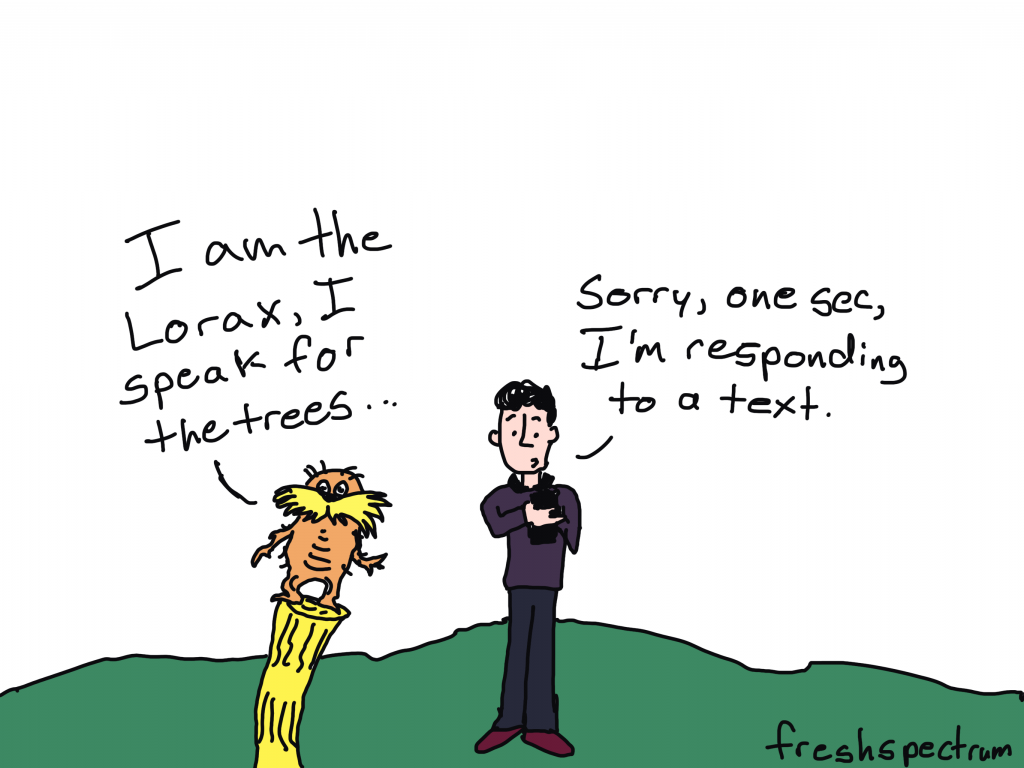This is an Eval Central archive copy, find the original at freshspectrum.com.
It’s late August, and are into another hot week here in North Carolina. So yet again I was outside with the hose watering our little vegetable garden. And in that meditative moment I thought about The Lorax.
I am the Lorax. I speak for the trees. I speak for the trees for the trees have no tongues.

Even as a kid I really felt that story. And I think it connects with what we do when we report, but maybe not in the way you might think.
By now you might be sick about me talking about my book (The Reporting Revolution, now on Amazon). But honestly, even though it does have almost everything to do with my consulting work, the book was still a passion project. I believe that if we want our work to stay relevant we need a mindset change when it comes to reporting.
We don’t need to speak for the data.

When a lot of researchers and evaluators talk about reporting, they’re really talking about documenting.
Don’t get me wrong, there is a real need to document our work. To write down everything about our methods, our analyses, our findings, and our recommendations. This is why I don’t despise 100 pagers. They have a role to play, it’s just not as a report.
Reporting is different than documenting. Reporting is less about capturing and more about communicating. Communicating is about connecting with real life people.
When you spend a lot of time with your work you start to believe that it needs an advocate. For example, if you have dedicated your last few years to collecting data, you will likely feel a responsibility to advocate for that work.
But our data work is a means, not an end. Data is only valuable in so much that’s it’s useful. And useful requires a user.
We do need to advocate for the people.

Thinking about your audience as you are documenting your work is not enough. You need to be an advocate for the people who could use your work.
Unlike trees, people have tongues. But most potential data users do not have a seat at the table as you collect and analyze your data. So they don’t have a voice in the decisions you make when sharing your work.
Being an advocate for your audience means seeing your data through their eyes, not your own.
This is why a report can be 1 pager or an infographic. Because the goal for these designs is rarely to document a project but communicate something of value for a specific audience.
If you can, join me tomorrow.
It’s a launch party, it’s going to be informal and fun. It’s also free with door prizes!